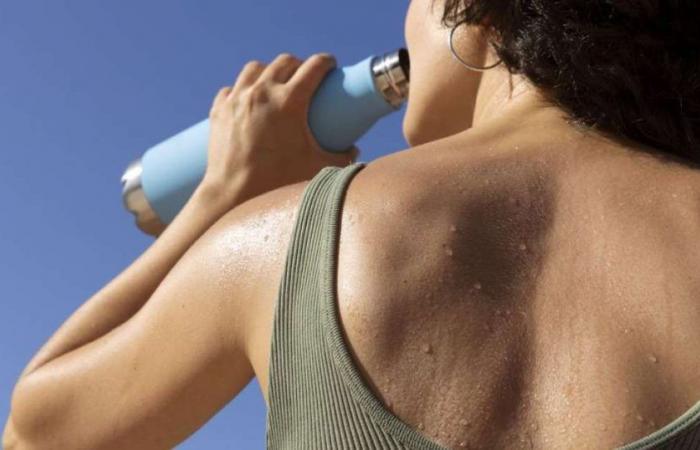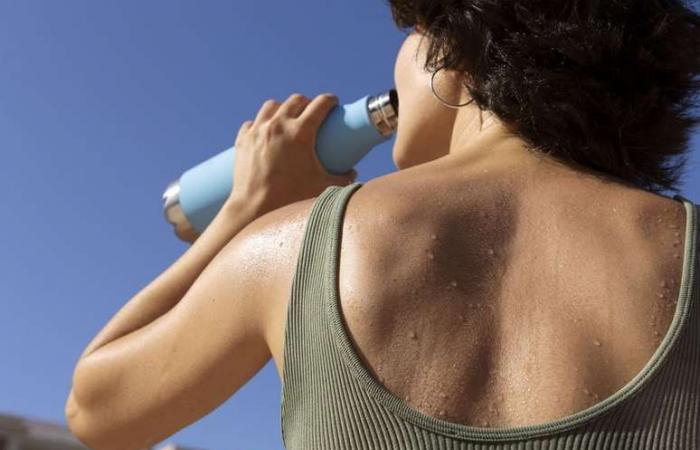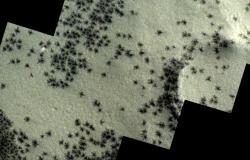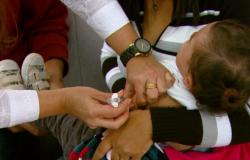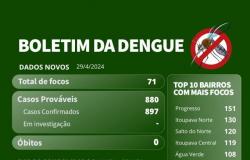After analyzing data collected in cities in Minas Gerais for almost 10 years, researchers from the Federal University of Juiz de Fora (UFJF) discovered that there is a direct relationship between the minimum temperature in a region and the number of dengue cases. In warmer places, disease infections are more common.
Photo: Wikilmages/Pixabay / Canaltech
Cities in Minas Gerais with an average minimum daily temperature of 21.2 ºC had more cases of the disease, transmitted by the dengue mosquito, compared to colder municipalities. In total, 38 microregions of the state were analyzed.
Previously, scientists from the Oswaldo Cruz Foundation (Fiocruz) demonstrated that intense heat and deforestation are responsible, in part, for the explosion of dengue cases in Brazil, as they facilitate the proliferation of the vector, the dengue mosquito.
More heat, more dengue
Published in the scientific journal Public Health Notebooksthe study that correlates the intensity of dengue cases with higher minimum temperatures used two main data sources:
- The official number of dengue cases, registered in DataSUS, during the years 2010 and 2019;
- Climate data measured by the European Center for Medium-Range Weather Forecasts, referring to the same period.
After crossing the data, the scientists discovered that Minas Gerais regions with average daily minimum temperatures of 11.6 ºC to 13.7 ºC — which encompasses moderate and extreme cold — reported fewer cases of dengue fever. On the other hand, 21.2 ºC seems to favor the proliferation of the infection.
Why does the cold keep the dengue mosquito away?
According to the researchers, the results demonstrate the fact that the temperature of the location influences the development of larvae and mosquitoes. Aedes Aegypti. It is known that the ideal temperature for the insect varies between 16 ºC and 34 ºC. At temperatures below 8 ºC, the larvae die within a few days.
Fighting the dengue mosquito
“Dengue is a seasonal but cyclical disease [acontece de tanto em tanto tempo mais ou menos no mesmo período]. We know that it will happen at certain times of the year, but it is difficult to know how it will behave epidemiologically”, explains João Pedro Medeiros Gomes, researcher at Ufjf and co-author of the study, for Bori Agency.
Heat facilitates the reproduction of the dengue mosquito and causes an increase in cases, according to a study that analyzed data from cities in Minas (Image: Freepik)
Photo: Canaltech
If it is not yet possible to control the average temperatures in a region — something even more complex considering the mass release of carbon dioxide from human action — it is possible to monitor thermometers and use them as an early warning sign.
“By influencing temperatures, climate changes can have an impact on the incidence of the disease, but they will not ‘generate’ dengue fever”, recalls the researcher. The spread of mosquitoes also depends on other factors, such as disorganized and intense urbanization or a lack of garbage collection.
Therefore, when the minimum temperature in a region is higher than normal, authorities could invest in awareness campaigns about the disease and actions to prevent breeding sites, based on this warning sign. There are already innovative tactics being tested in the country, such as the use of drones to control the vector. This would greatly contribute to combating the disease.
Source: Bori Agency
Trending on Canaltech:
+The best content in your email for free. Choose your favorite Terra Newsletter. Click here!

